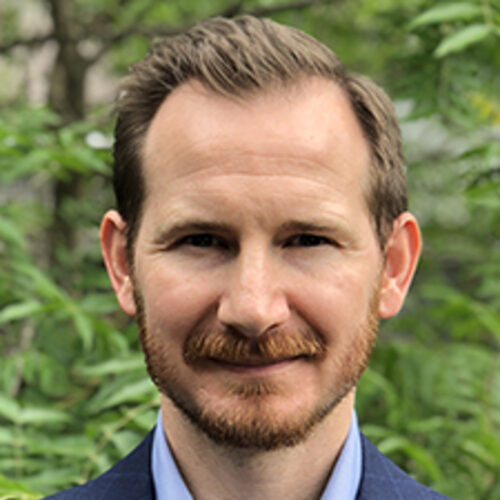
Michael Cotton
2019 John Marshall Fellow
What is your current position?
I’m clerking for Judge Don Willett on the U.S. Court of Appeals for the Fifth Circuit.
How did you hear about the Claremont Institute?
Former John Marshall Fellows!
There are all sorts of educational programs out there for current and rising conservative professionals. What do you think makes the Claremont Institute’s Fellowships unique?
The class sizes are intimate, and Claremont structures its programs to give you time outside of class with other fellows. So you really get to know some of the smartest young lawyers in the country. We had a lot of fun taking our discussions from the classroom to the hospitality suite. And the faculty tends to linger around the hospitality suite too, so there is plenty of opportunity for one-on-one conversation with world-class scholars.
Who was more important for their time, George Washington or Abraham Lincoln? Why?
Very tough question. But I’d say Lincoln. Lincoln called Americans’ attention back to our founding principles—that we are all created equal and endowed with natural rights, rights that precede government. These principles could never have been fully realized while the evil of slavery persisted. And it’s hard to imagine the country defeating slavery and surviving as a union without Lincoln.
What do you believe is the greatest challenge facing the United States today?
Faction. We are losing a cohesive sense of what it means to be Americans, largely because we are losing touch with the ideas of the Founding. Without a uniting narrative, the country is descending into tribalism and faction.
What qualities will make outstanding statesmen/women in this century?
We need leaders who can provide vision for who we are as a people—united in a credal identity—and for where we are going. And that vision needs to be something that can draw people from across the political divide. No easy task. This kind of statesman/woman would need wisdom, humility, and courage.
What do you think has been the major contributor to the demise of our country’s lack of political civility?
There is a well-worn anecdote about G.K. Chesterton: The Times sent out an inquiry to famous authors, asking, “What’s wrong with the world today?” Chesterton responded, “Dear sir, I am. Yours, G.K. Chesterton.” It’s a lot easier to see people on the other side as worthy of dignity and respect when we can, with humility, face our own sin and fault. And humility seems to be an increasingly rare quality. Self-righteousness will always be poison to genuine dialogue.
What books are you currently reading?
I’m reading For the Life of the World, by Alexander Schmemann, The Screwtape Letters, by C.S. Lewis, and Little Women, by Louisa May Alcott.
What book, movie, or speech has left a lasting impression with you? Why?
C.S. Lewis’s The Chronicles of Narnia. In those books, things are not always what they seem. There’s often a deeper magic at work, and what’s real only becomes clear on the heels of faith. That principle has been tremendously valuable in my life.
What is the most distinctive attribute/character of the people in the state where you grew up that you genuinely admire?
Kindness. I grew up in Oklahoma, and people are kind there. It’s a very gracious, accepting culture, and typically people treat each other with respect and civility, whatever their differences.
What is your favorite cultural/recreational pastime (or hobby)? Why?
Anything that takes me outside, like hunting or hiking. Being in nature makes me feel like a human being, which is needed when your day job requires you to stare at a screen all day.

